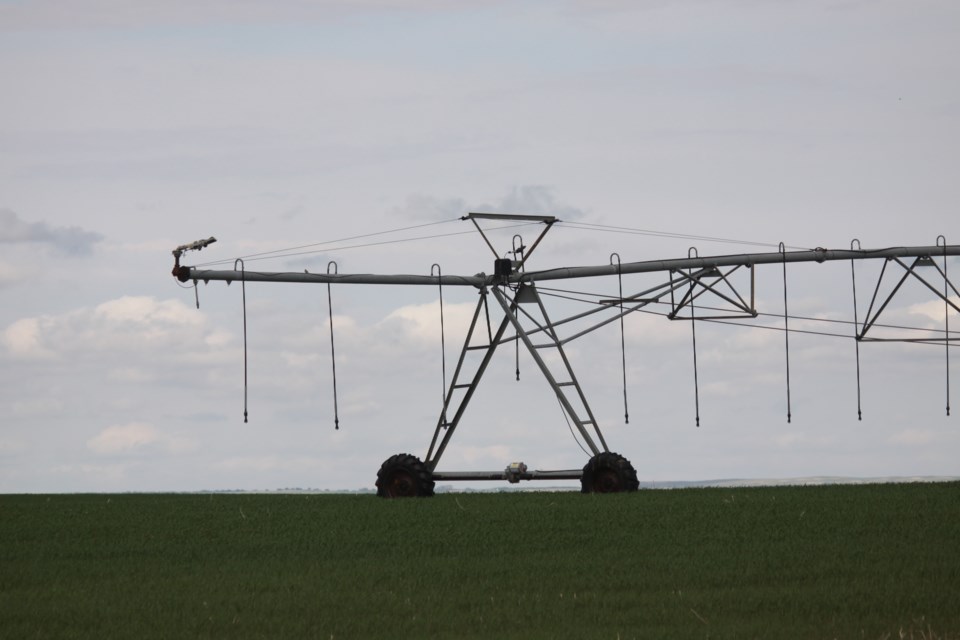Two irrigation projects with potential to add between 400,000 and 550,000 irrigated acres in Saskatchewan are part of federal initiatives.
The federal agency, Western Economic Diversification Canada (WD), has been asked to make a recommendation on the projects by March next year.
WD Assistant Deputy Minister Dr. Abdul Jalil was at the Saskatchewan Irrigation Projects Association conference in Moose Jaw to get the perspective of irrigators about the projects.
Since June, the agency has engaged with the province and a number of organizations to better understand the potential, he told the conference.
Building one or both projects will “require public investment” to tap water potential more efficiently and revitalize rural communities.
“We can increase the production. We can have processing. We can have different varieties of crops.”
While the 85,000 acre irrigation expansion planned by the province by 2030 is appreciated the “west side and the Qu’Appelle South have opportunity to contribute to the economy.”
The Qu’Appelle South proposal, linked to a water conveyance from the Qu’Appelle dam to Buffalo Pound Lake, would irrigate between 100,000 and 150,000 acres between Tugaske and Marquis.
The West Side proposal, located around Conquest, would irrigate between 300,000 and 400,000 acres.
“How do we change the trajectory to where we want to be and where we can be?”
Jalil said Saskatchewan’s untapped irrigation can help feed nine billion people by 2050.
“When we are talking about irrigation we’re not talking about my generation. It’s not about us. It’s about generations to come. Water is becoming more and more scarce.”
In food producing areas like California “there are some projections that those aquifers are not storing as much water as is being pumped out. Some of those aquifers in the food production areas will be depleted significantly.
“They won’t have a capacity to produce food as they have now,” creating an opportunity for Saskatchewan.
Ron Walter can be reached at [email protected]




